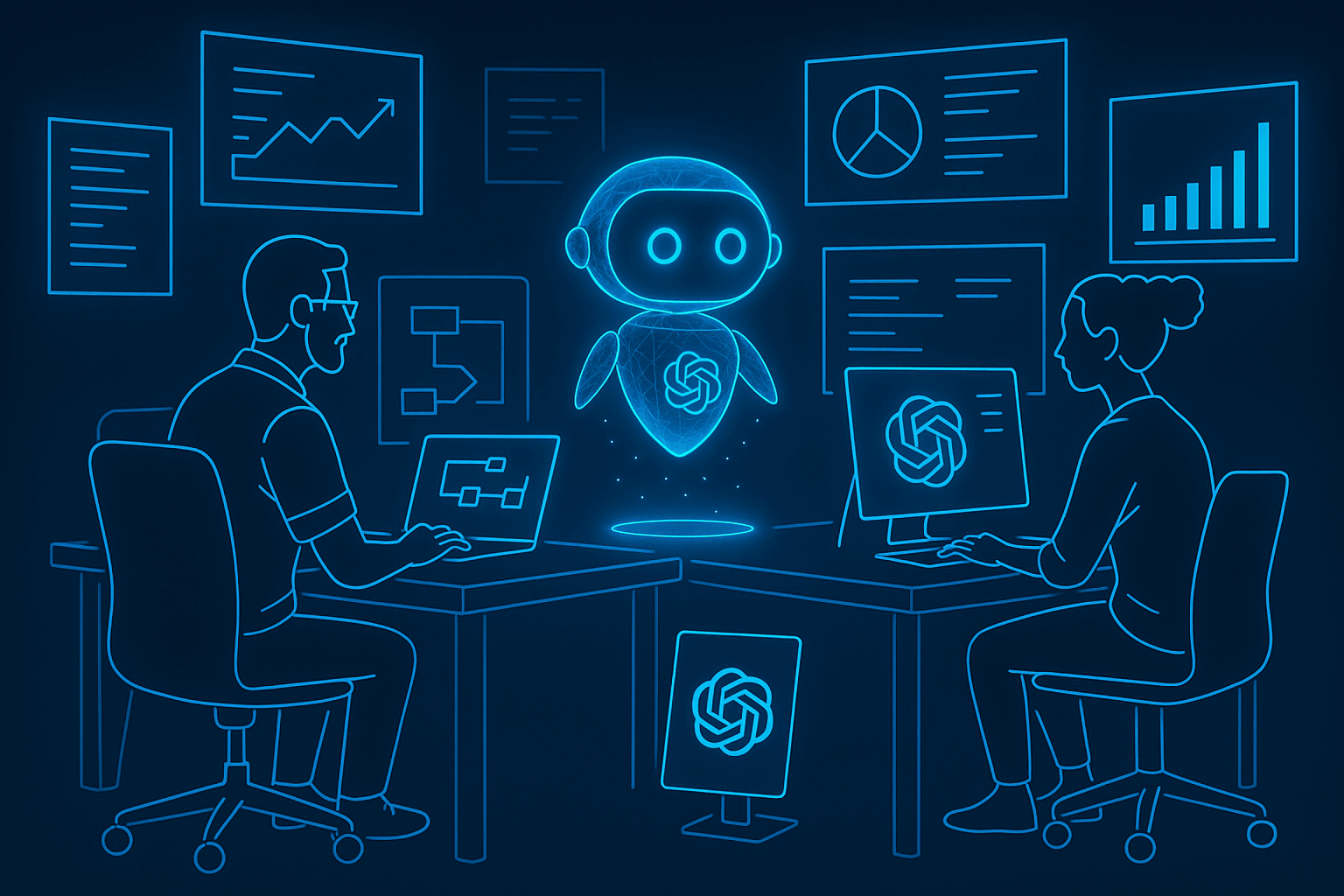Every business leader is asking the same question: can AI agents really replace employees?
The short answer is no. The better answer is: not yet, not entirely, and not in the way most people think.
AI agents are not a magic workforce. They are software that can take action within clear parameters, connect across systems, and carry out tasks without constant human input. Used well, they give teams leverage. Used badly, they create noise, failed pilots, and wasted budgets.
So let’s cut through the speculation and look at what AI agents can actually do for businesses, what they cannot, and how leaders should think about adoption.
What AI Agents Can Do Better Than Employees
AI agents shine when the work is:
- Repetitive: Scheduling, reporting, data entry.
- Rule-based: Processing invoices, tracking expenses, monitoring compliance.
- Scalable: Handling thousands of customer requests or transactions at once.
- Real-time: Pulling live data, generating instant insights, triggering actions across multiple platforms.
These are areas where employees often get stuck in low-value work. Offloading them to agents means your team can focus on strategy, creativity, and relationship-building — the things machines cannot do.
What AI Agents Cannot Do (And Where People Get It Wrong)
This is where noise leads to poor decisions. AI agents cannot:
- Replace human judgment in ambiguous or high-stakes scenarios.
- Build trust with clients, partners, or employees.
- Navigate context that requires empathy, negotiation, or leadership.
- Solve broken processes. Automating chaos only gives you faster chaos.
Leaders who assume “replace” instead of “augment” set themselves up for failure. The goal is not fewer humans. The goal is smarter humans with better tools.
AI Agents vs Human Employees: A Clearer View
| Capability | AI Agents | Human Employees |
|---|---|---|
| Repetition | Execute flawlessly, 24/7 | Fatigue, errors, context loss |
| Adaptability | Improve within narrow parameters | Flexible across new contexts |
| Decision-making | Based on defined data and rules | Nuanced judgment, negotiation |
| Creativity | Limited to prompts and training | Original thinking, innovation |
| Relationship-building | None | Trust, leadership, collaboration |
The Real Impact on Jobs
AI agents are not eliminating jobs wholesale, but they are changing how jobs are structured.
- Some tasks will disappear. Data entry, scheduling, reporting.
- Some roles will evolve. Analysts spend less time compiling data, more time interpreting it.
- Some skills will rise in value. Strategy, creativity, leadership, and adaptability.
The real question for leaders is not “Who will be replaced?” but “How do we redesign roles so humans and agents work together effectively?”
How Businesses Should Think About Deployment
- Start with tasks, not roles. Identify repetitive, rule-based tasks that eat up time but do not require human judgment.
- Choose the right platform. Match your needs to the platform. See our guide to the best platforms to develop AI agents.
- Pilot with purpose. Avoid “innovation theatre.” Run a small test tied to a clear business outcome.
- Reskill your team. Freeing up time only matters if people know how to use it well.
- Monitor impact. Measure business results, not just “agent usage.”
Common Pitfalls to Avoid
- Over-reliance: Agents are only as good as their design and data.
- No clear outcome: “Let’s try AI” is not a strategy.
- Ignoring people: Employees need to trust the agents or adoption will fail.
- Compliance risks: Always check data handling, privacy, and governance.
Why This Debate Matters
The conversation about AI agents and employees is not about replacement. It is about leverage. Businesses that get this right will move faster, reduce waste, and empower their people to focus on the work that truly creates value.
Those that get it wrong will waste months on pilots that never scale, alienate their teams, and chase headlines instead of results.
Where Markat.ai Fits
Markat.ai helps businesses cut through the noise. Instead of building from scratch, you can find, test, and adopt AI agents that are already running in real environments. You can try them against your workflows, collect feedback, and scale the ones that deliver real results.
This is how you get past theory and into execution.
FAQ
Will AI agents replace employees?
No. They replace repetitive tasks, not human judgment or creativity.
Which jobs are most affected?
Jobs heavy in data entry, scheduling, and reporting will change the fastest. Roles focused on strategy, leadership, and creativity will grow in importance.
How should businesses prepare?
Start small, train teams, and treat AI agents as part of the workforce, not a replacement for it.
Can I test agents before rolling them out?
Yes. Markat.ai lets you trial agents in your environment and see measurable impact before committing.
Bottom line:
AI agents will not replace employees. They will replace tasks. Leaders who understand the difference will unlock efficiency without losing the human value that actually drives business forward.

